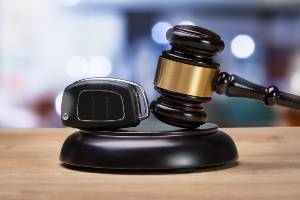Benefits of Not Posting on Social Media During an Injury Claim
 There are many benefits to hiring a lawyer after a car crash, one of which is receiving guidance on how to protect the value of your claim.
There are many benefits to hiring a lawyer after a car crash, one of which is receiving guidance on how to protect the value of your claim.
For example, your lawyer may recommend staying off social media until the legal process has concluded.
You may be thinking it is not necessary to completely avoid social media. You can simply be careful about what you post.
While using caution on social media may be effective, there are significant advantages to avoiding it altogether. To put it simply, there is significant risk and little reward to continuing to use social media during your claim.
If you are considering possible legal options after being injured in a car crash, TSR Injury Law is here to help. Our Bloomington-based auto accident lawyers have been helping crash victims for decades, and our firm has secured millions in compensation. An initial consultation is free, and we do not charge upfront fees for our services.
Risks of Using Social Media During Your Case
What is the worst thing that could happen if you continue posting to social media?
The main problem is you may write something or post a picture that damages your credibility and that could be used as an excuse to deny or undervalue your claim.
Pictures of You Having Fun
For example, you post a picture that shows you having fun on vacation or on a night out with friends or family members. It seems harmless, but the insurance companies involved in your claim, both yours and the bad driver’s, monitor postings. They will argue “you do not look like you are in pain.” They will argue your injuries have healed or are not as serious as you claim.
Pictures of Physical Activity
Pictures of you engaging in strenuous physical activity, exercising, lifting weights, doing chores or even just smiling or looking happy, could all be used against you. Insurance companies do not want to pay out compensation. As such, they will look for any excuse to devalue your claim, no matter how flimsy it may seem. The photos never show you after the daily activities taking medications, seeing doctors or using ice packs. It is just that moment in time when you are trying to enjoy life. Most injuries are not so catastrophic you are unable to function. Most cause daily pain, but people find a way to move forward. Photos only show one side of the story.
Posts Talking About the Crash
Posts discussing the crash could also hurt your claim. You could write something the insurance company may say is an admission of fault.
For example, if you say you could have done some things differently to avoid a crash, this makes it sound like you are partially to blame.
Comments on Your Posts
Comments on your posts could also hurt your claim.
For example, a close friend or family member could talk about how he or she is glad you are feeling better. Remarks like that could be used as a reason to undervalue or deny your claim.
Many people use social media to keep their friends and family members updated about what is going on in their lives. Even if you tell yourself you will avoid discussing the crash or posting something that you think could hurt your claim, it is difficult to stick to the plan.
Posts About Your Injuries
Discussing your injuries can be a very bad idea. For some reason, victims tend to downplay their injuries. Maybe they do that because they are trying to stay positive or because treatment is working.
On the other hand, posts talking about how severe your injuries are could be used by the insurance company to say you are exaggerating. This is an attempt to attack your credibility. No matter what you say, the insurance companies will use it against you which is why not posting anything is safest.
Trashing the Insurance Company
You may be unhappy with the insurance company’s settlement offer or with how difficult they have made the legal process. However, trashing them on Facebook or another social media platform may lead the insurance company to claim you are negotiating in bad faith.
Contradicting Yourself
It is difficult to remember everything you have said about a crash before posting to social media. You could inadvertently say something that contradicts an earlier statement you made. You may not even remember what you previously said until the insurance company brings it up.
Using Privacy Settings
You may be thinking you can simply use privacy settings to keep the insurance company from seeing your posts. However, social media privacy settings may not guarantee complete protection from those trying to gain access.
Sometimes insurance company representatives pose as someone else and send friend requests to crash victims. Sometimes crash victims accept these requests, which allows the insurance company to see everything they post to social media. The insurance company can also review older posts to compare them to what you are posting while your claim is being processed. In addition, there are instances when a Judge may allow the other side to review your private posts. Even if you are secure at the onset, the private posts may later be seen.
One thing to remember is that unless you have a business and need to promote your products or services, you are not likely to make money on social media. Even posting in that situation could hurt the financial value of your claim and cause you to end up with less compensation.
Avoiding Social Media Altogether During Your Claim
If you stay off social media during the legal process, you are not risking posting something that could be used against you. You will not need to watch what you say or use caution accepting friend requests because you will be off social media. You are also not putting yourself in a situation where you could unintentionally hurt your claim.
All that said, it is a good idea to instruct friends and family members to avoid talking about your accident or injuries or posting pictures of you during the legal process. If the insurance company gains access to their social media feeds, posts about you could damage your claim.
TSR Injury Law May Be Able to Help You. Call Today
For more than two decades, we have been assisting injury victims as they pursue compensation for their damages. In that time, we have obtained $1 billion on behalf of our clients, many of whom were injured in car crashes.
There is no financial risk in contacting us or working with our firm – we work on contingency and do not charge upfront fees for our services.
Learn more by calling today. Free consultation. (612) TSR-TIME


 Car accidents are often so traumatic to the body they not only cause new injuries, but they also aggravate old ones. While much of the attention is on new injuries, if old ones were aggravated and need additional treatment beyond what the victim was already receiving, you may be able to include this treatment in your claim.
Car accidents are often so traumatic to the body they not only cause new injuries, but they also aggravate old ones. While much of the attention is on new injuries, if old ones were aggravated and need additional treatment beyond what the victim was already receiving, you may be able to include this treatment in your claim. We seek professional help in a variety of situations. For example, many people who develop health problems see a doctor. People who need help with their taxes often seek out an accountant. People also hire realtors to help them search for a new place to live.
We seek professional help in a variety of situations. For example, many people who develop health problems see a doctor. People who need help with their taxes often seek out an accountant. People also hire realtors to help them search for a new place to live. Drunk driving often results in serious injury or death, which is why it is illegal and drivers who are found guilty of this offense face severe penalties in the criminal justice system.
Drunk driving often results in serious injury or death, which is why it is illegal and drivers who are found guilty of this offense face severe penalties in the criminal justice system. Last week, state lawmakers announced they will be pushing for new legislation to try to end predatory business practices that result in accident victims selling their settlements at huge discounts.
Last week, state lawmakers announced they will be pushing for new legislation to try to end predatory business practices that result in accident victims selling their settlements at huge discounts. Impaired driving has become all too common on Halloween – the October 2021 edition of the MADD Minnesota, North Dakota and South Dakota Regional Newsletter notes some alarming statistics about this issue.
Impaired driving has become all too common on Halloween – the October 2021 edition of the MADD Minnesota, North Dakota and South Dakota Regional Newsletter notes some alarming statistics about this issue. The fatal drowning of six-year-old Isaac Childress III raises an important point about Public Water Access areas. Even if there is a sign saying Public Water Access, it may not be safe to swim.
The fatal drowning of six-year-old Isaac Childress III raises an important point about Public Water Access areas. Even if there is a sign saying Public Water Access, it may not be safe to swim.